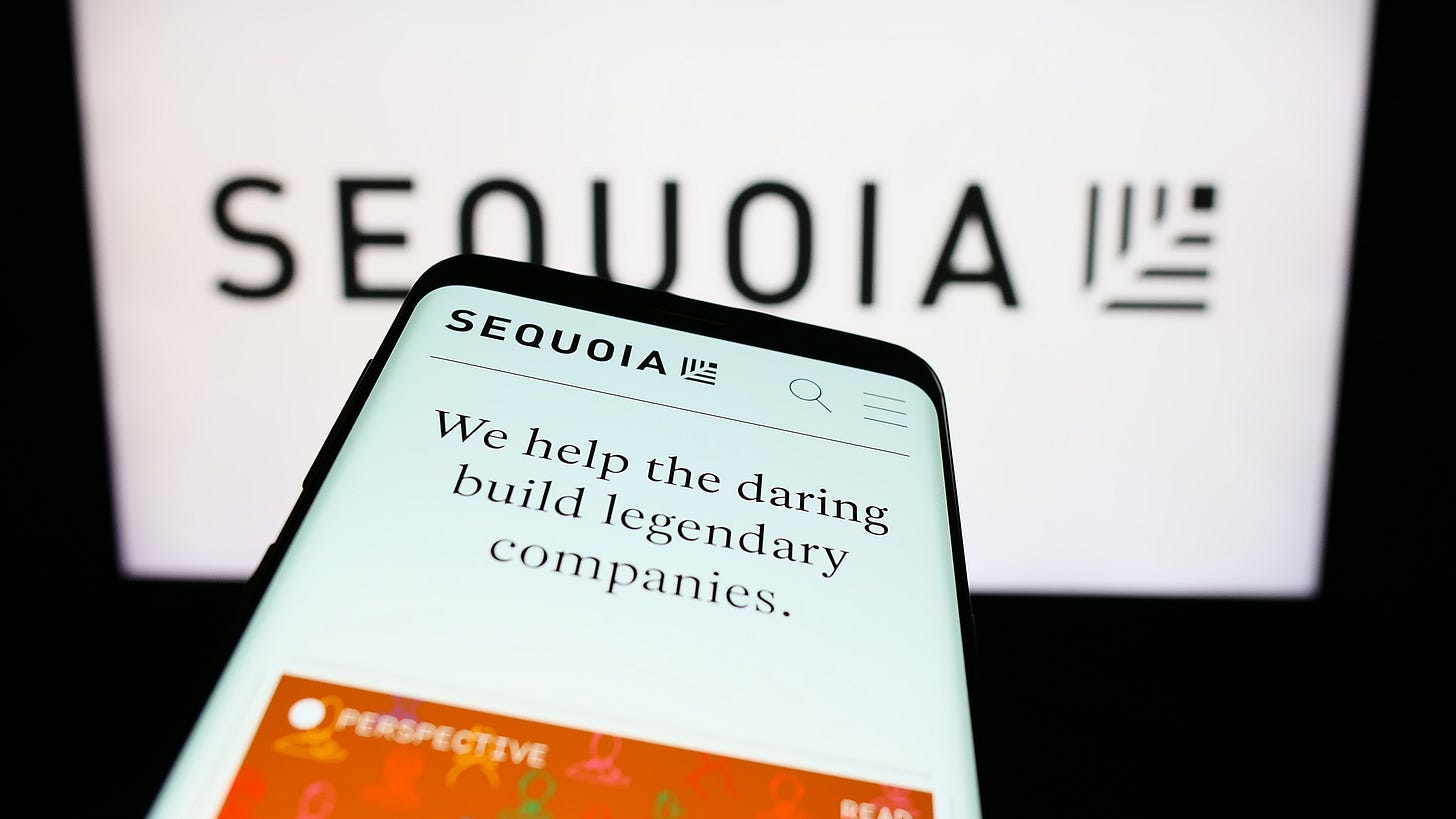Sequoia’s Choice
When neutrality costs nothing—and integrity costs your job.
Sequoia Capital just showed us exactly what “institutional neutrality” means—when billions are at stake.
Sumaiya Balbale—the firm’s chief operating officer, a Shake Shack board member, someone “well regarded internally and by the start-ups she worked with as an experienced operating executive”—resigned in August after complaining about partner Shaun Maguire’s Islamophobic posts. Senior partners declined to discipline him, citing free speech. Her position became untenable. She left.
Maguire stays. Because his bet on SpaceX netted Sequoia roughly $4 billion on paper—earning him “a lot of rope” at the firm.
Let’s be precise about what happened. Maguire wrote on X that New York mayoral candidate Zohran Mamdani “comes from a culture that lies about everything. It’s literally a virtue to lie if it advances his Islamist agenda. The West will learn this lesson the hard way.”
This wasn’t his first offense. He’d endorsed Germany’s far-right AfD party—prompting London-based partner Luciana Lixandru to publicly distance herself, writing she felt “compelled” to share that “extremism on either side” is dangerous. He’d endorsed Tommy Robinson, a convicted criminal and UK anti-immigration activist. He’d accumulated enough controversial statements that more than 1,000 founders and tech employees signed an open letter demanding discipline.
Balbale—a practicing Muslim who has spoken publicly about how her gender, ethnicity, and faith shaped her career—complained to senior partners. They told her Maguire was exercising free speech. She resigned. Balbale walked out not because she couldn’t handle internal bias, but because the firm chose not to act. That tells you everything.
The asymmetry reveals the calculation.
When your COO complains that a partner’s Islamophobia creates a hostile environment, the firm’s version of “institutional neutrality” means she leaves. When that partner’s posts cause private complaints from portfolio company executives and institutional investors, when Middle Eastern sovereign wealth funds say “he is not welcome here,” when a financier calls his behavior “a humiliation”—institutional neutrality means he stays.
Because SpaceX returns are good.
This isn’t neutrality. This is a choice about whose value to the firm matters more. And Sequoia decided: $4 billion in paper gains from betting on Elon Musk outweigh retaining your chief operating officer, maintaining relationships with Middle Eastern capital, and avoiding the reputational damage of 1,000+ founders demanding accountability.
Managing partner Roelof Botha—who has described the firm’s approach as “institutional neutrality” where “staff are entitled to their own positions”—held an all-hands meeting to “keep peace internally” while “trying to limit wider fallout by not commenting publicly.” Translation: we know this is indefensible, we’re hoping it blows over, and we’re not taking action because Maguire’s returns matter more than our stated principles.
But neutrality would mean consistent standards. It would mean either everyone can post inflammatory political content without consequence, or no one can. What Sequoia actually practices is selective tolerance calibrated to financial returns and network positioning.
Maguire replied to Lixandru’s criticism of his AfD endorsement: “One of the beautiful things about Sequoia is that we’re comfortable disagreeing with each other. Personally I think it’s the secret to the firm’s historical investment success.”
That framing is instructive. “Disagreement” suggests a marketplace of ideas where different perspectives coexist productively. But when one person endorses far-right extremists and another says that’s dangerous, and the firm protects the first while losing the second—that’s not comfortable disagreement. That’s a choice about which positions are tolerable.
One Middle Eastern financier told the Financial Times: “You work for your limited partners and founders, you are entrusted with serious capital by investors. This is not good for the brand.”
Except it might be exactly the brand Sequoia is building—one aligned with what many observers see as the Musk/Thiel ecosystem where democracy is treated as failed experiment and hierarchy as inevitable solution. Losing Middle Eastern LPs becomes acceptable if you’re gaining position in networks where SpaceX access and Musk proximity matter more than sovereign wealth fund relationships.
This case is specific to Sequoia, but it suggests a broader pattern emerging across Silicon Valley venture capital—where political tolerance gets calibrated to returns, where “institutional neutrality” becomes cover for protecting positions that serve certain networks, where the choice between principle and profit consistently resolves the same way.
Sumaiya Balbale walking out the door while Shaun Maguire keeps his partnership isn’t a scandal Sequoia is managing. It’s a decision Sequoia made—about whose presence matters, whose complaints count, and which political positions are compatible with partnership.
The firm decided a Muslim COO objecting to Islamophobia was more expendable than a partner whose extremism alienates sovereign wealth funds but who made them billions betting on Elon Musk.
Sequoia didn’t remain neutral. It sided. And the side it chose is clear: profit first, principle second. Fair enough. But that’s not neutral.
It’s a choice.





When I was allocating money recently I crypto space I was considering BMNR, Bitmine run by Tom Lee. Then Peter Thiel took 10% stake. Thats was it for me. It has done well, but I used my agency to not participate with him.
When it comes to money, most people who cry agency, personal responsibility dont think that way...returns at any cost!
Excellent piece -appreciate your perspective and excellent arguments that are well written.